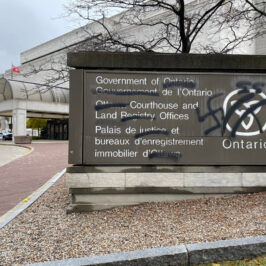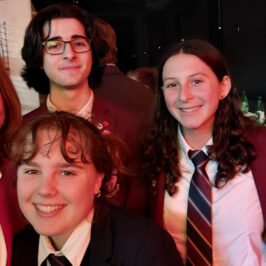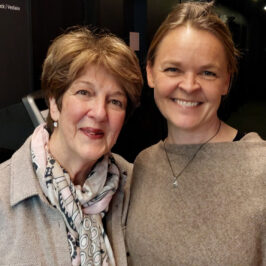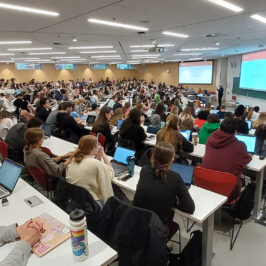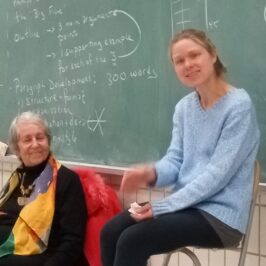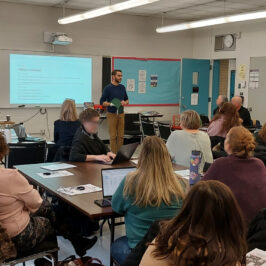By Dr. Hartley Stern
“The room was 12 feet long by 11 feet wide. It was bare, it was cold, but it was a refuge.” These are the opening words of the book, ‘Hidden for 1000 Days’ my grandmother, Sarah Veffer, wrote to tell the story of how she, my grandfather Jonas, my mother Rachel, and her brothers Jack, Allan, Max , Joe, and Johnny survived in hiding for two years, nine-and-a-half months in Bussum, The Netherlands, during World War II.
I first learned the details about my grandparents’ and their childrens’ survival story when my grandmother published her book in 1960 when I was 10 years old.
Their story is clearly one of the courage and resilience, certainly of my grandparents, my mother, and all of my uncles, but they could not have survived without the extraordinary courage, intelligence, and selflessness of the Righteous Dutch Gentiles who risked their lives to save them.
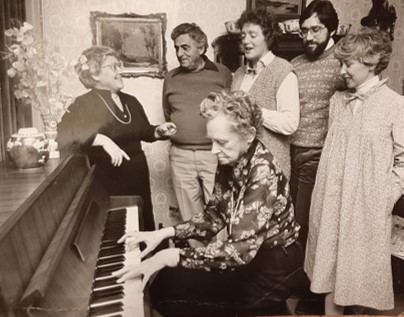
On May 12th, my wife Dorothy I and represented the descendants of my family at a ceremony in which Yad Vashem honoured five local families in the Bussum synagogue.
There were wonderful speeches by members of the Israeli Embassy, the Mayor of Bussum, and the leadership of the local Jewish community. A highlight for me was to listen to the words of the descendants of the individuals being honoured who, until recently, knew little of the heroic efforts of their grandparents. The families I thanked included the Bakkers, who played a singularly significant role in saving my family. Their 1000 days of hiding in Bussum were spent in the Makkinje home, next door neighbours to the Bakkers. The other families present included the descendants of Dr. Martens and Dr Boon, who in times of need hid my youngest uncles in the Catholic and Protestant hospitals as sick Christian children. The most daring of the resistance workers was Helena Van Weerens who used a”Mata Hari”-like code name – Auntie Fifi. She and the two doctors saved dozens of other Jews besides my family.
The Veffers suffered tremendously during their period in hiding: lack of access to fresh air; a small, crowded space for eight people; starvation; acute illnesses; loneliness; constant fear of discovery and death; separation; and depression. Yet all of these privations were endured with dignity and with the constant support of the truly remarkable individuals who were being honoured.
After the war ended my mother, Rachel, was married in Bussum to my father. Martin Stern, a Canadian soldier, and they became the catalyst to help all the Veffers emigrate to Toronto. For me, the most emotional moment of the ceremony came while delivering my words of gratitude and realizing that I was standing on the very bima upon which my parents married in 1946.
The six Veffer children produced 15 grandchildren who in turn produced 27 great-grandchildren and 29 great- great- grandchildren living all over North America and in Israel. These descendants include doctors, lawyers, teachers, PHDs, editors, rabbis, and businesspeople. They contribute significantly to the economic, cultural, and philanthropic richness of their respective communities.
The Yad Vashem initiative was promoted by the granddaughter of the real hero, Annie Makkinje, who was my mother’s childhood friend and who convinced her parents to take my family in and hide them. Yad Vashem initially turned them down because they charged my family rent. However, eventually the money ran out and the Makkinje family continued to shelter my family with no remuneration. This was the deciding point for Yad Vashem.
My grandmother concludes her story with: “ Many families hid from the Germans in Holland, but few came through alive. No other family of eight remained alive to tell the tale in circumstances such as ours. So there is a difference from the usual war story, in this our own tale. Yes, there is a difference. A happy ending. That is the difference.”

